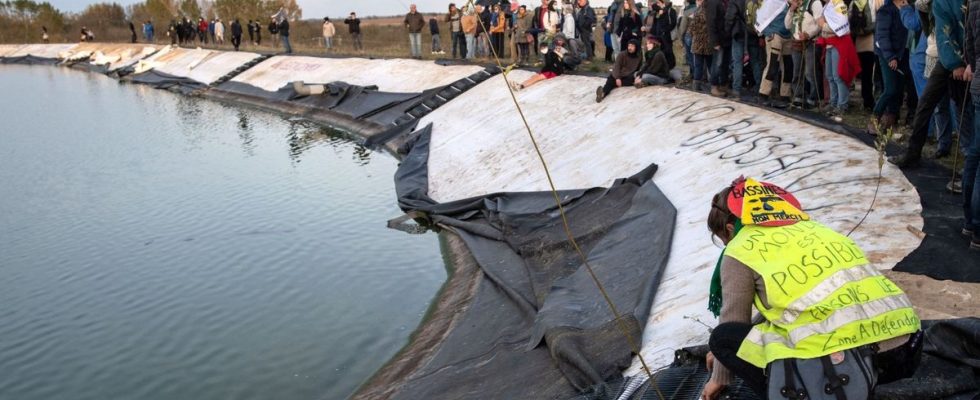The administrative court of Poitiers suspended on Monday in summary proceedings the planning permit issued by the mayor of the commune of Val-du-Mignon for the construction of the Priaires basin (Deux-Sèvres) because the elected official is one of the beneficiaries of the project. This suspension lasts “until a ruling on the legality of this decision is made”, specifies the court in its order.
Requested by the Association for the Protection, Information and Studies of Water and its Environment (APIEEE), the judge in summary proceedings considers that the elected representative “will be a direct beneficiary, in her capacity as manager of the Agricultural Group of joint operation (Gaec) of Eole, of a significant part of the water reserves to be stored in the disputed reservoir located near its operation and that this Gaec is also a member of the anonymous cooperative society of water from Deux-Sèvres who has the status of petitioner”. The municipal council should therefore have designated another of its members to make this decision, as provided for in article L. 422-7 of the town planning code, according to the court.
Anti-basin activists denounced “a provocation by the State”
Priaires is the smallest of the sixteen basins programmed in Deux-Sèvres. A first is operating in Mauzé-sur-le-Mignon, and another is under construction in Sainte-Soline, where several demonstrations gave rise to clashes with the police.
Anti-basin activists denounced “a provocation by the State” after the opening of the Priaires construction site at the end of August, two days after the arrival in Paris of a convoy of opponents of these water reservoirs. At the beginning of September, the prefect of Deux-Sèvres, Emmanuelle Dubée, and two agricultural unions condemned “deterioration” around the Priaires construction site, with opponents claiming for their part the fall of “the first gates”.
These basins dug into the earth are intended to store water drawn from groundwater in winter, in order to irrigate crops in summer. Their supporters consider it crop insurance essential to the survival of farmers in the face of repeated droughts. Opponents denounce a “grabbing” of water by “agroindustry”.

